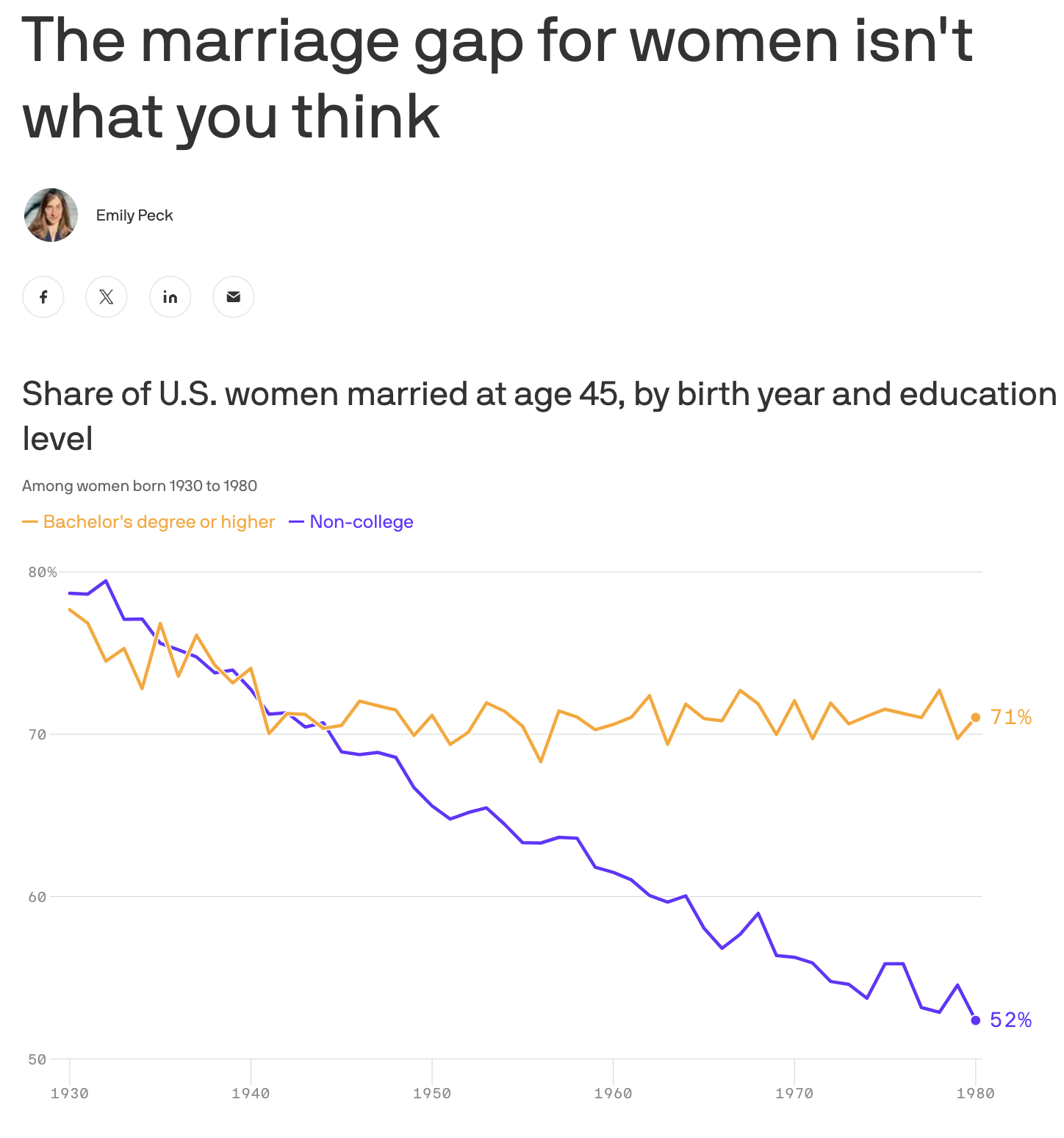Article of the Week #5 (Due Monday, Feb. 10th)

Analysis by Clara Chambers, Benjamin Goldman and Joseph Winkelmann of Current Population Survey data; Note: Non-college is defined as women without a bachelor's degree; Chart: Axios Visuals
There's a growing marriage gap in the U.S.: Marriage rates for women without college degrees are falling, while rates for those with four-year degrees are holding steady.
- A fascinating new working paper, titled "Bachelors without Bachelor's," from researchers at Cornell, Harvard and Yale unpacks the trend.
Why it matters: The drop-off in marriage rates for women without degrees has everything to do with their male counterparts, the researchers find.
How it works: Men without degrees have seen their economic prospects decline over the past few decades, a trend that's been well-documented.
- These financial troubles have led to lower marriage rates for men — and for women without four-year degrees. (Even as these women have seen their incomes rise.)
- In other (potentially outdated) words: a "good" man has become harder to find, at least for women with less than a four-year degree. So they're getting married less.
By the numbers: 71% of women with a bachelor's degree, born in 1980, were married by age 45. That's compared to 52% of women without a degree, per the research.
- The paper looked at government data for women born 1930 - 1980, and also projected out these numbers through to women born in 1994, and found that this trend should continue.
Zoom out: There's been a lot of worrying in recent years that women with degrees would have trouble finding husbands; fewer men are graduating from college, after all. So who would these ladies marry?
- Turns out that a good-sized share of college-educated woman have always married men without bachelor's degrees, per the research.
- These men tend to be the highest earners among their peers. The non-college educated men, born in 1980, who married college-educated women earned $68,000 a year. That's compared to $46,000 for the other men, per the research.
- The pool of men left behind are the ones who are less likely to marry — their incomes have declined over the years, researchers found.
The bottom line: The declining economic prospects of men are undermining the marriage prospects of women.